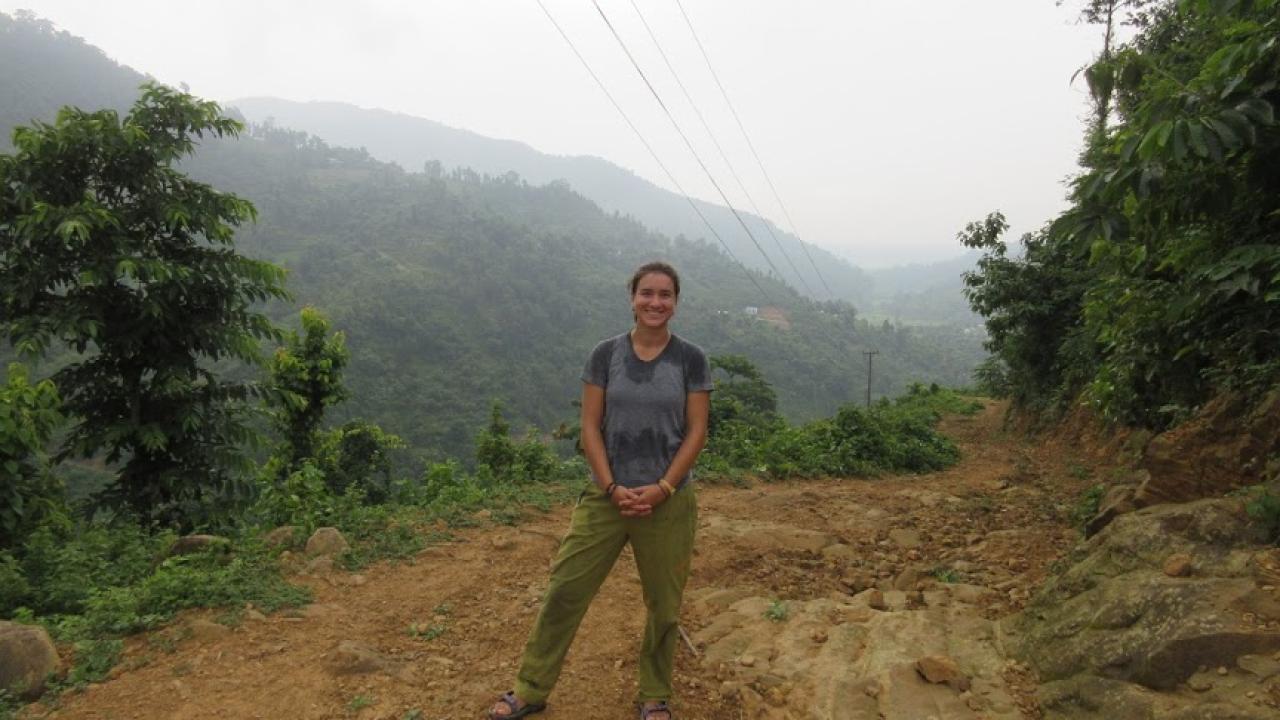
Henry A. Jastro Award takes Laura Reynolds to Nepal
Final report, Henry A. Jastro Research Fellowship 2016-2017
By Laura Reynolds
In August-September 2016, sponsored by the Henry A. Jastro Research Fellowship, I traveled to Nepal to interview female farmers about changes to their households and farms amid massive male emigration. Working-age men are leaving Nepal to find employment in Gulf states, Malaysia, and elsewhere, usually for years at a time, and sending the bulk of their remittances to their home communities. This phenomenon, replicated in many developing countries worldwide, has a variety of effects in farming communities, including changing gender dynamics on farms, decreased reliance on agriculture as a source of income, and increased enrolment of children in private schools. At the same time, agricultural cooperatives are helping farmers connect to value chains, save and re-invest their earnings, and greatly increase their production. In analyzing the data collected in Nepal, I hope to compare and contrast the differing effects of migration and cooperative membership as development strategies at the household and community levels, and suggest opportunities for development synergy between the two strategies. This research will form my graduate thesis for UC Davis’ International Agriculture Development program.
I was in Nepal for six weeks; during this time, I partnered with the non-governmental organization Heifer Nepal to conduct my surveys. I interviewed 85 women farmers in four Nepalese districts, laying the foundation for a return trip in December-January 2016-2017. This return trip, in which I interviewed 45 more women farmers, was sponsored by the USAID Research and Innovation for Agriculture fellowship.
Throughout the course of my project I also interviewed other stakeholders, including USAID staff, cooperative managers, Heifer Nepal directors, Nepal agriculture ministry officials, and growers’ associations officials. I used these interviews to gain a larger picture of the motivations of Nepali men migrating abroad for employment, and the challenges and opportunities presented to family members left behind in Nepal. I also gained a sense of the opportunities to boost the development impact of remittances sent by family members working abroad (e.g., via reinvestment of remittances into farming businesses through the help of cooperatives).
In addition to my graduate thesis, a major output of my research will be a final report submitted to Heifer Nepal; this report will emphasize actions Heifer Nepal can take to maximize the impact of their cooperatives on agricultural development—and gender equality—at the household and community levels.